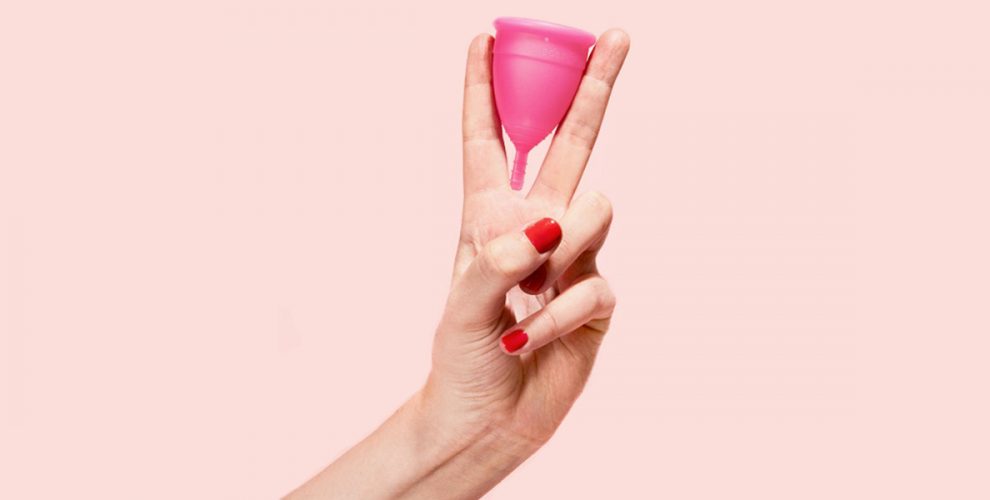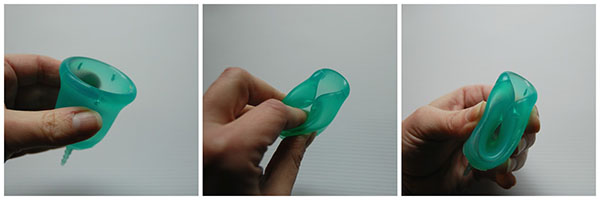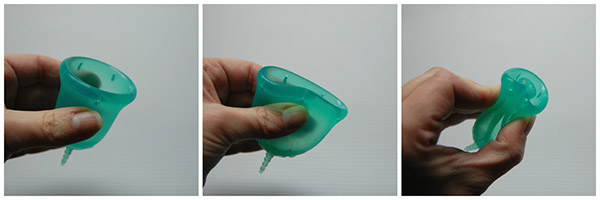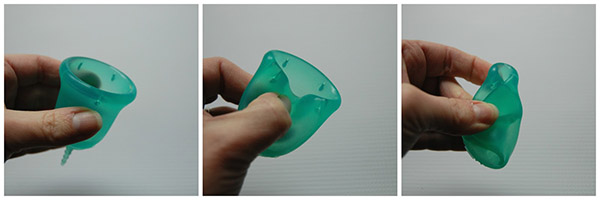Using A Menstrual Cup
At 11, I got my first period and like most Singaporean girls, I used a disposable pad to manage my menstrual flow.
For the next 12 years, disposable pads were my idiot-proof, easy-to-use period go-to. But I didn’t like the occasional rash and chafing disposable pads caused, or how they felt like adult diapers. One of my friends recommended I buy a reusable, S$33 menstrual cup from Freedom cups and since I’ve made the switch, I’ve never gone back to pads.
If you’re unsure of trying menstrual cups or are looking for ‘period diaper’ alternatives, I’ve created a guide on how to use menstrual cups to show you how, and I promise, it’s not as daunting as it seems.
Also read:
Why use menstrual cups
Menstrual cups are made of food-grade silicon and can be reused for a whole year. Because menstrual cups collect rather than absorb blood, you’re not at risk of getting toxic shock syndrome. The vacuum also prevents menstrual blood from oxidising which eliminates foul menstrual blood odour.
Menstrual cups also hold more blood than regular pads or tampons. Depending on your flow, a menstrual cup can be worn for 12 hours straight leak-free when inserted correctly. But I understand why menstrual cups can be intimidating.
When I unboxed my first cup, I thought, “How the hell am I going to fit this thing in my vagina?” Though the average cup is two to three times wider than tampons, there is a trick to inserting it.
Note: Before using your cup for the first time, soak it in boiling water for a few minutes to sterilise it. Do this before and after every period.
Using a menstrual cup for the first time
Before you insert the menstrual cup, get familiar with your body’s anatomy. Locate your vaginal opening and find out how deep your vagina is by inserting a finger and touching your cervix (it feels like touching the tip of your nose). This will give you a rough idea of where the cup will go.
Then, choose your folding method to insert your menstrual cup. Here are several common folds, each with its pros and cons: the heart fold, shell fold, 7-fold or triangle fold, and origami fold.
1. Shell fold (My personal favourite!)
How to fold: Push one edge of the cup down to the middle. While this fold is the most popular choice for comfort, holding the fold in place while inserting the cup into the vagina can be difficult.
2. Heart Fold
How to fold: Pinch the cup closed and then fold in half. While this method is the quickest and easiest, the large tip might be harder to insert.
3. 7-Fold/Triangle Fold
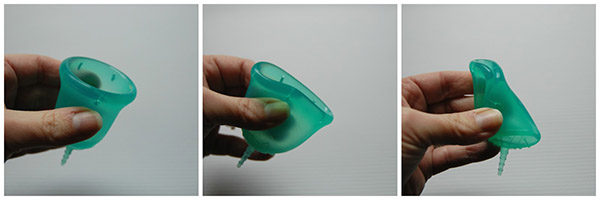
How to fold: Press the cup flat and fold one corner down to the base. This fold creates a tiny insertion point but is harder to wiggle the cup in place once inserted.
4. Origami Fold
How to fold: Push an edge halfway towards the centre and bring one top corner diagonally down to create a rosebud shape. While this fold is harder to hold together, it creates one of the tiniest insertion points.
Inserting and removing the menstrual cup
To insert the cup, get into a half-squat and relax. Holding your cup in the fold of your choice, gently push it in. If you can’t get the cup in comfortably on the first try, don’t panic. Pinch the cup’s stem to release the air and break the cup’s suction seal. Remove the cup and try again.
Tip: If you can’t reach the cup, squat on the floor or stand with one foot on the toilet seat. This shortens the vagina and lowers the position of the cup for easier access.
The process should be painless and when inserted correctly, shouldn’t feel uncomfortable.
Why I like menstrual cups
Like most, my first time inserting the menstrual cup was a little messy. Some girls might also find it difficult to get the cup far in enough. But once you get the hang of it, you’ll find menstrual cups to be a cleaner and more comfortable alternative to disposable pads.
If you have an active lifestyle, the menstrual cup can make exercising a lot more comfortable; I do canoe polo and cross fit and the menstrual cup’s vacuum keeps the cup in place so I can workout without worry.
I have a regular period flow and use the grande size cup (35ml). On the first two days of my period, I usually empty the cup twice. Subsequently, I rinse my cup once. To get rid of the blood, I use the handicapped cubicle and wash the cup in the sink. Alternatively, you can carry around a bottle of water and rinse the blood into the toilet bowl when you pee.
Embracing Menstrual Cups
If your first menstrual cup doesn’t work out for you, don’t be discouraged. With the wide range of cup sizes, shapes and brands available, you’re bound to find the menstrual cup that’s the right fit for you.
*This article is jointly written by Cheryl, Julia, and Marissa, from Marissa’s POV. Marissa is a videographer for our sister site Eatbook.sg.
Also read:
Cover image: Source

